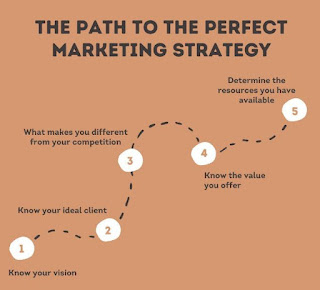When Should You Put Your Marketing Strategy into Action?
A marketing strategy is a document that lays out the fundamentals of all of your marketing efforts, which will aid in the organization's growth. Is there, however, a specific moment when a marketing strategy should be implemented?
According to experts, your company should be able to carry out strategies. When you're on the defense, it's the worst time to start implementing new marketing strategies. In such circumstances, you should stick to your previous techniques and make sure you get out of the quagmire.
In general, a marketing strategy should be developed when a company has reached a desirable level and wishes to advance. However, you should not wait so long that your firm suffers a major setback. As a result, the timing of a marketing plan's implementation is critical to its effectiveness.
Before developing a marketing strategy, a corporation should consider the following factors:
Financial stability
It is pointless to design or implement new ideas if the organization is not financially stable. This is due to the fact that implementing plans will include changes for which your business may not be prepared at this time.
You must implement a survival and revival plan, but not a growth plan, during such times. A marketing strategy aimed at accelerating an organization's growth will include long-term investments. As a result, financial stability is a significant signal of when to implement your marketing strategy.
Acceptance of change
Organizational changes may be part of a marketing strategy. For instance, you might be introducing new customer service techniques. Alternatively, you could be overhauling your entire sales process. Are your staff in the correct frame of mind to embrace change? Change is always met with opposition.
As a result, before introducing change, make sure your company is in good shape and your employees are motivated. Change will not have a significant impact on your organization if you take this precaution.
This is due to the fact that your staff are in terrific physical condition and ready to meet whatever goals you set for them. If the situation is tumultuous, however, your employees are reluctant to accept greater change and stress, and are more likely to change the company itself, causing more problems for your company.
Data and research
Before beginning planning operations, the organization should have sufficient research data to carry out the plans. A marketing strategy should be in line with the company's vision. Thus, if a strategy is to be implemented, data is required to describe how the process will take place, what the final results should be, and what techniques should be used to meet the marketing plan's goals.
For instance, if you want to boost sales, what is the total sales potential of all territories? What is the total number of consumers who require service? As a result, you must determine the appropriate amount of individuals to provide prompt customer assistance.
Communication
A marketing plan should preferably be implemented after you have informed your staff about the upcoming change. This is very important for small businesses, and it is frequently followed even in larger businesses.
Employees are informed of any changes that are taking place (it might not be described in detail, but the employee is given the hint that there are going to be changes). Such communication prepares employees for upcoming changes, allowing you to quickly adopt the marketing strategy. Even customers are suppliers and key customers are informed of these changes so that they are in sync with the organization if there are significant changes.
Backups
All plans should include a "what if" scenario before being implemented. What if the strategy fails? What if the end outcome isn't to your liking? What if the idea is a resounding success right away? (Can it be scaled?)
Before implementing the marketing strategy, all of these questions should be addressed. As a result, if the strategy fails miserably or succeeds wildly, you'll know exactly what to do next.
Now that you've got the first four elements in place, it's time to put the marketing strategy into action. The important thing to remember here is to keep indications on the move. As a result, you may compare your present positions to the indications of the marketing plan at any point in time to see if you're on track or not.

Post a Comment for " When Should You Put Your Marketing Strategy into Action?"